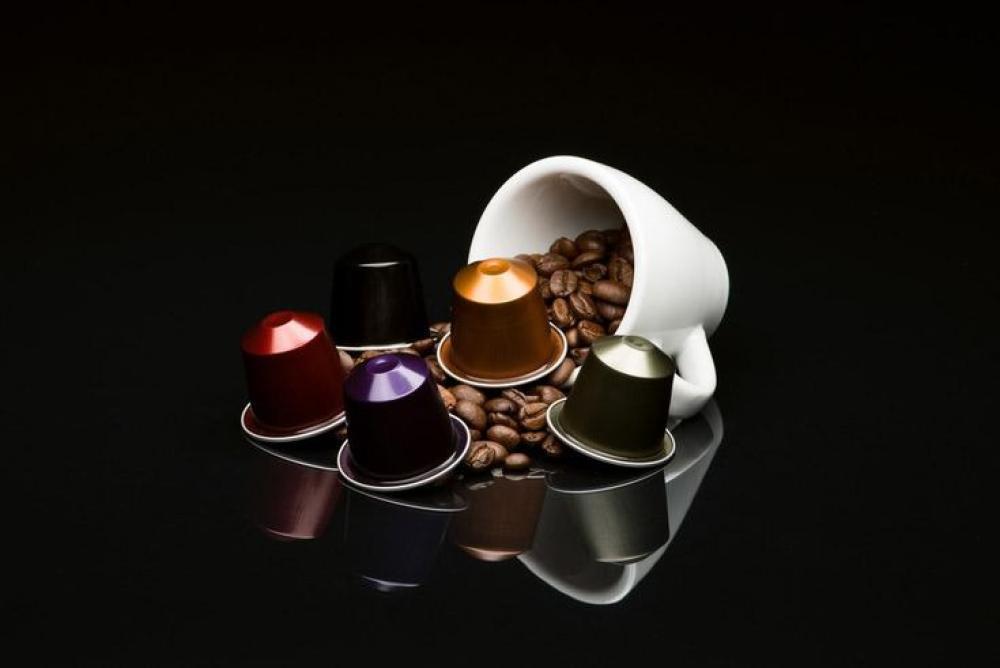With the evolution of coffee preparation methods, coffee lovers have a variety of options, ranging from traditional methods to modern systems, most notably capsule machines. A fundamental question many ask here is: Is it better to use capsules? Or is preparing espresso the traditional way still the ideal choice? To understand the differences between the two methods more deeply, this article reviews the most prominent advantages and disadvantages of each, highlighting the most significant differences between them.
What is the fundamental difference between capsules and traditional espresso?
The main difference lies in the preparation method. Capsules are airtight containers containing pre-ground coffee, placed in a special machine, and used at the push of a button. Traditional espresso, on the other hand, uses freshly ground coffee, manually filled into the espresso machine's portafilter, with control over grind, pressure, and extraction. The basic idea is that capsules offer ease of use, while traditional espresso offers a professional, customizable experience.
What are the most important advantages of coffee capsules?
- Ease of preparation: The most important feature is convenience. All you need to do is insert the capsule, press the button, and wait a few seconds. There's no need to grind, refill, or clean the machine after each use.
- Flavor Variety: Capsule manufacturers offer a wide variety of flavors, geographic origins, and roasts, allowing users to easily experience different tastes.
- Quality Consistency: Since each capsule contains a precisely measured dose of coffee, the result is consistent every time, with no variation in taste or intensity.
- Clean and Safe: The capsules are tightly sealed, so there's no mess during preparation and no coffee residue to clean up frequently.
What are the disadvantages of using coffee capsules?
- Higher long-term cost: Although convenient, capsules are more expensive than buying ground coffee. With repeated daily use, the cost of capsules becomes much higher in the long run.
- Customization Limitations: The amount of coffee, grind degree, or extraction time cannot be adjusted, preventing you from having complete control over the taste as you would with traditional espresso.
- Environmental Impact: Many capsules are not recyclable, causing a significant environmental burden, especially with heavy use.
- Machine dependency: Each type of capsule requires a compatible machine, which can limit users when switching between brands.
What are the advantages of preparing traditional espresso?
- Complete control: You can adjust every element of the brewing process, from the grind level to the amount of coffee and water and the extraction time. This allows you to create a cup of coffee that precisely suits your taste.
- Professional results: When you use good equipment and high-quality coffee, you can achieve a taste that rivals the best coffee shops.
- Long-term savings: After purchasing the basic equipment, buying ground coffee or roasted beans is much cheaper than relying on capsules.
- Enjoyable brewing experience: The brewing process itself is beloved by many coffee lovers, who find it a kind of enjoyable daily ritual.
What are the disadvantages of traditional espresso?
- Time and Effort: Preparing espresso requires knowledge and skill, and it takes more time than just pressing a button.
- Difficulty in cleaning: Tools such as the portafilter, brewing group, and coffee grinder need to be cleaned regularly to maintain quality and flavor.
- Start-up cost: Investing in a good espresso machine and professional grinder can be high, although this is more than offset later in operating costs.
Which is better for everyday use, espresso capsules or traditional espresso?
It depends on your lifestyle. If you're looking for convenience and speed without the hassle of grinding and brewing, capsules are ideal. If you're a coffee connoisseur who appreciates the finer details and flavor and is willing to put in the effort for a truly distinctive cup, traditional espresso is the way to go.
Can the two methods be combined?
Yes, many coffee lovers prefer using capsules for quick mornings or at the office, while devoting more time to preparing espresso manually on weekends or evenings. Combining the two methods offers a balance between convenience and taste quality.
Is the flavor different between capsules and traditional espresso?
In general, yes. Capsules offer a pre-defined, non-adjustable flavor profile, and may lack some of the depth and complexity achieved through manual brewing. Traditional espresso, on the other hand, can achieve a wide range of flavors with fine-tuning and skill, including balanced acidity, floral notes, or a deep earthiness.
Are capsules suitable for all coffee lovers?
Not necessarily. Capsules are suitable for the casual user or beginner looking for a quick and easy solution. However, true coffee connoisseurs who care about detail and subtle flavors may feel that capsules lack true character and variety.
Finally, it's impossible to say whether capsules are better or that traditional espresso is the only option. Each method has its pros and cons, and the final choice depends on lifestyle, budget, and personal preference. If you value convenience and speed, capsules offer the perfect solution. However, if you view coffee making as a daily ritual filled with passion, traditional espresso is what you're looking for. What's most important is that you enjoy a cup of coffee that suits your taste, whether it's prepared with the push of a button or through carefully considered and personalized steps. You can now browse the Coffee Luxury blog to learn more about coffee, its preparation methods, and the most prominent differences between each type.

